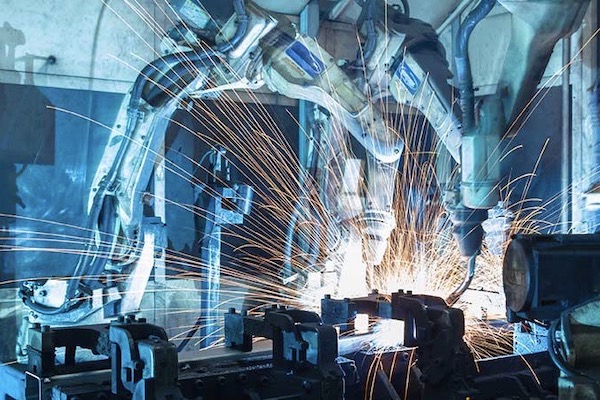Published on the 16/03/2023 | Written by Heather Wright

Accelerated depreciation on offer for 4.0…
Accelerated depreciation, a business growth fund and co-funding investment grants to encourage technology adoption are among the proposals in a newly released government plan for the advanced manufacturing sector.
The Advanced Manufacturing Industry Transformation Plan (ITP) aims to increase productivity and high wage jobs in the sector, with increased investment in advanced technologies and processes – or Industry 4.0 – slated as the number one priority. Upskilling workers with digital skills was the second priority.
It notes that the sector has low capital investment in technology compared to international benchmarks, relying instead on labour-intensive business models, and correlates that with low productivity and lower wages.
“Accelerated depreciation has the potential to be a pivotal action.”
“Over the last 40 years, New Zealand has persistently been one of the poorest performers in terms of productivity. The average New Zealand firm produces just over half the output of similar firms overseas using the same amount of labour,” it says.
A 2021 Heavy Engineering Research Association report found the uptake of advanced technologies and processes in the Kiwi construction sector could, in the most optimistic scenario, bolster GDP by $8 billion, with wages up $3.5 billion across the economy over the five years to 2026. The most pessimistic scenario reported GDP gains of $4.1 billion and wage increases of almost $1.8 billon.
Among the benefits of advanced technologies, according to the ITP are the ability for increased output per worker in a finite labour market, enabling growth irrespective of labour constraints; the ability for greater innovation in design, production and rapid business models to enable advanced manufacturers to more easily provide customised solutions; the opportunity for manufacturers to provide complementary services such as after-market servicing using real-time data; and environmental benefits.
The Industry 4.0 Demonstration Network, an initiative by Callaghan Innovation, Beca and the EMA, has been encouraging local manufacturers to embrace new technology and innovate to remain globally competitive, using a fusion of technologies.
But finding the funding for advanced manufacturing technologies such as sensors, automation and robotics, digital manufacturing, digital twins, AI and VR, along with the skills, time and knowledge, have been key challenges.
Just 35 percent of New Zealand manufacturers say they have up-to-date core equipment, while more than 10 percent say they’re at least 10 years behind – putting manufacturing behind all other New Zealand industries. And 66 percent say it’s the inability to secure initial funding that is a key barrier to utilising the advanced technologies to a greater degree.
The ITP, two years in the making and still a work in progress, aims to address that with a range of initiatives designed to encourage manufacturers to understand the value of technologies, see how it can apply in their business, to buy and use the technology.
While the Government has committed $30 million to implement some of the immediate actions identified in the plan, including $3.6 million for company specific advice on adopting advanced technologies and processes and $4 million to upskill manufacturing workers in digital skills, the question of paying for advanced technology is more complex.
The plan proposes ‘exploring options to reduce the cost and/or risk of capital investment in advanced technologies and processes’.
The plan says accelerated depreciation has ‘the potential to be a pivotal action’ incentivising increased investment in innovative technologies across a range of manufacturing sectors.
A global assessment by Findex found that New Zealand is an outlier in the amount of capital investment costs that can be recovered by advanced manufacturers through the tax system, with most OECD and small advanced economies having accelerated depreciation incentives already in place.
The ITP is also proposing investment grants, similar to Australia’s $50 million Manufacturing Modernisation Fund which provides up to $1 million for 25 percent of eligible project costs, and low interest or government guaranteed loans, which could help companies with the time delay from committing finance to an asset and having it generate revenue.
Any introduction of plans to support greater capital investment isn’t slated until year two, with a year of ‘assessments’ planned first, alongside seeking government approval to introduce the mechanisms and working with the NZ Export Credit Office to ensure its loan guarantee can support capital investment.
The remaining four priorities in the plan are
- Creating a leading sustainable circular net-zero emissions sector
- Improving understanding and perceptions of advanced manufacturing
- Making innovation, R&D and science work for advanced manufacturing, and
- Enhancing global connectivity and opportunities
However, the report notes there was ‘overwhelming’ sector support for urgent action on the first two priorities of increasing investment in tech and developing and attracting a diverse high-skilled and high-wage workforce.
Brett O’Riley, EMA chief executive and co-chair of the Advanced Manufacturing ITP steering group, says there is ongoing commitment from business to realising the vision of the ITP, and a new Advanced Manufacturing Aotearoa group is being formed to drive the plan.
The plan is one of eight being developed in consultation with government agencies, industry bodies and business – and all currently at different stages of play – to increase productivity and performance in key sectors of the economy.
Public consultation is underway on a ‘refreshed’ Agritech ITP, first launched back in 2020, with the Digital Technologies ITP due for release later this month.
Work is also underway on plans for construction, fisheries, food and beverage, forestry and wood processing and tourism.



























